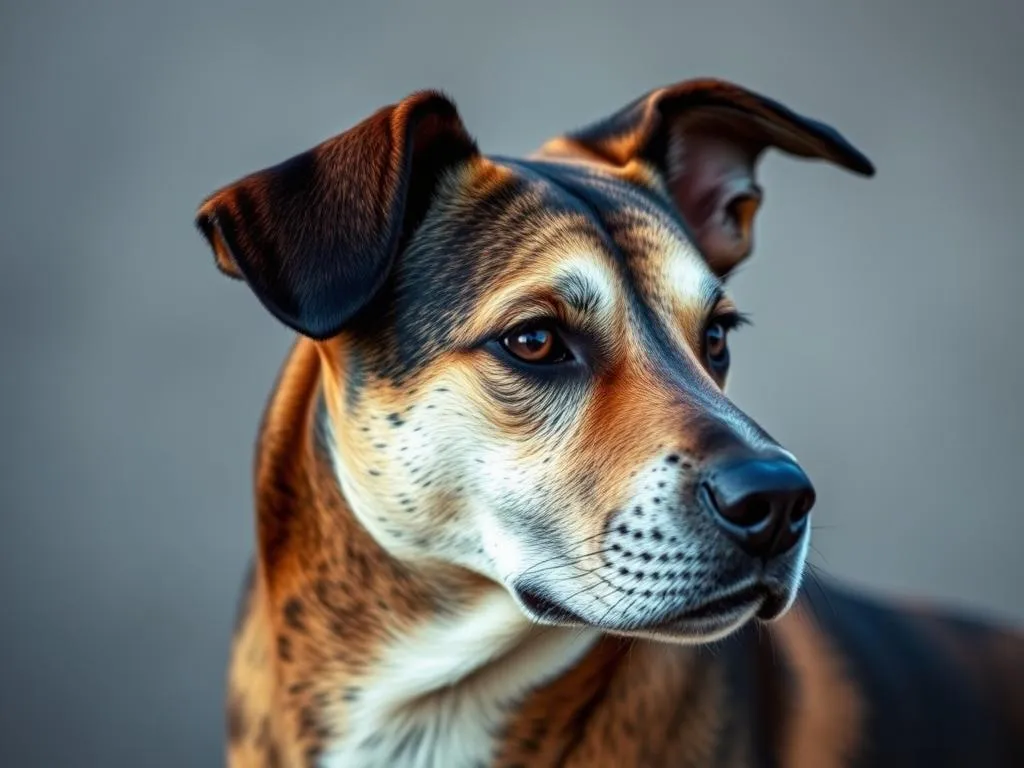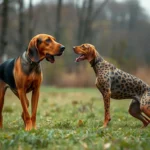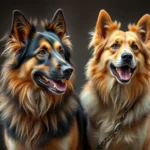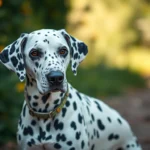
Understanding African dog breeds not only connects us to the continent’s rich history but also provides insight into the diverse characteristics and temperaments of these remarkable canines. From the majestic Rhodesian Ridgeback to the agile Basenji, each breed tells a story of adaptation and cultural significance. In this article, we will explore the origins, traits, care requirements, and more for these unique breeds.
Historical Context
Origins of African Dog Breeds
The domestication of dogs in Africa dates back thousands of years. Archaeological evidence suggests that dogs have been part of African societies since prehistoric times. The African dog breeds we see today have evolved through selective breeding practices that were influenced by local environments and the needs of various communities.
Historically, dogs have played various roles in African cultures, from hunting partners to protectors of livestock. They have been integral in the survival of communities, showcasing their loyalty and usefulness.
Influences on Breed Development
Environmental factors significantly contribute to the characteristics of African dog breeds. For instance, breeds that originated in arid regions have developed traits that allow them to thrive in harsh conditions, such as longer legs for speed and endurance. Additionally, interactions with other dog breeds through trade and migration have led to the incorporation of various traits into these breeds, resulting in the diverse appearances and behaviors we see today.
Popular African Dog Breeds
Basenji
The Basenji, often referred to as the “barkless dog,” is native to Central Africa. This breed is known for its unique yodel-like sound, which is a result of its uniquely shaped larynx. Basenjis are small, athletic dogs with tightly curled tails and a short coat that comes in various colors.
Temperament: Basenjis are independent, intelligent, and sometimes aloof. They make excellent companions but require consistent training to manage their strong-willed nature.
Common Uses: Historically, Basenjis were used for hunting small game, and today they serve as loyal companions and show dogs.
Rhodesian Ridgeback
The Rhodesian Ridgeback is a striking breed known for the distinctive ridge of hair along its back that grows in the opposite direction to the rest of the coat. This breed originated in Southern Africa and was originally bred to hunt lions, showcasing its bravery and tenacity.
Temperament: These dogs are known for being loyal, intelligent, and strong-willed. They require firm training and socialization from an early age.
Historical Background: The Rhodesian Ridgeback was developed by the Khoikhoi people and European settlers, combining the traits of indigenous dogs with European breeds.
African Boerboel
The African Boerboel is a large, powerful breed known for its protective nature. Originating from South Africa, this breed was developed to guard homesteads and livestock.
Temperament: Boerboels are confident, loyal, and protective, making them excellent family dogs. They require proper training and socialization to ensure they are well-behaved.
Role: The Boerboel is not only a guardian but also a loving companion, forming strong bonds with its family.
Azawakh
The Azawakh is a sighthound from the Sahel region of Africa, known for its elegance and agility. This breed has a slender build, long legs, and a short coat, making it well-suited for the hot climate.
Temperament: Azawakhs are affectionate and loyal to their families but can be reserved with strangers. They are intelligent and independent, requiring a patient owner for training.
Cultural Significance: Among the Tuareg people, Azawakhs are prized for their speed and hunting ability, often used to track game across vast landscapes.
Coton de Tulear (African Origins)
Although primarily associated with Madagascar, the Coton de Tulear has African roots and is known for its cotton-like coat, which is soft and fluffy. This small breed is characterized by its cheerful disposition and affectionate nature.
Temperament: Coton de Tulears are friendly, playful, and highly social. They thrive on human interaction, making them excellent family pets.
Historical Ties: The breed was named after the city of Tulear in Madagascar, where it was favored by royalty and became a symbol of prestige.
Unique Traits of African Dog Breeds
Adaptations to Environment
Physical Traits: Many African dog breeds exhibit physical adaptations that help them thrive in their environments. For instance, the Rhodesian Ridgeback’s muscular build and endurance make it an effective hunter in the savanna, while the long legs of the Azawakh enhance its speed for tracking game.
Behavioral Traits: Behavioral adaptations also play a role. Breeds like the Basenji are known for their resourcefulness and problem-solving abilities, traits that have helped them survive in the wild.
Cultural Significance
Dogs have held significant roles in traditional African societies. For example, herding breeds are essential for managing livestock, while hunting dogs assist in food procurement. In many cultures, dogs symbolize loyalty and protection, often depicted in folklore and art. Their presence in stories highlights their importance in human life, reinforcing the bond between dogs and people.
Care and Maintenance
General Care Requirements
Nutrition: Proper nutrition is vital for the health of African dog breeds. High-quality dog food that meets their specific dietary needs is essential. For example, larger breeds like the Boerboel require a diet that supports their muscle mass and joint health.
Grooming: Grooming needs vary among breeds. Short-haired breeds like the Basenji require minimal grooming, while the Coton de Tulear needs regular brushing to prevent matting.
Health Concerns
Certain health issues are more prevalent in specific African dog breeds. For example, the Rhodesian Ridgeback may be prone to hip dysplasia, while the Boerboel can face health challenges related to its size, such as obesity and certain genetic conditions. Regular veterinary check-ups can help in early detection and management of these issues.
Training and Socialization
Training is crucial for all breeds, especially those with strong-willed natures like the Basenji and Boerboel. Positive reinforcement techniques work best, encouraging desired behaviors without harsh discipline. Socialization is equally important, exposing dogs to diverse environments, people, and other animals to develop well-rounded temperaments.
Adoption and Breeding Considerations
Where to Find African Dog Breeds
Finding a reputable breeder or adoption center is essential when seeking African dog breeds. Look for breeders who prioritize health testing and ethical breeding practices. Adoption centers and breed-specific rescue organizations can also provide opportunities to find these unique breeds in need of homes.
Ethical Breeding Practices
Responsible breeding practices are critical for preserving the integrity of African dog breeds. This includes health testing, proper socialization of puppies, and ensuring a good match between dogs and prospective owners. Challenges such as overbreeding and genetic health issues must be addressed to maintain the diversity and vitality of these breeds.
Comparison with Non-African Dog Breeds
Differences in Temperament and Behavior
Temperament: Many African dog breeds exhibit traits that differ from popular non-African breeds. For instance, while Labrador Retrievers are known for their friendliness and eagerness to please, breeds like the Basenji may be more independent and reserved.
Adaptability: African breeds often have a higher adaptability to harsh environments due to their historical roles in survival situations. This may result in differences in trainability and responsiveness to commands.
Lifespan and Health Metrics
The lifespan of African dog breeds can vary but is generally comparable to non-African breeds. However, specific health issues may impact longevity. For instance, the average lifespan of the Rhodesian Ridgeback is around 10-12 years, similar to that of many popular breeds like the Beagle. Understanding breed-specific health concerns can aid in making informed decisions regarding pet ownership.
Conclusion
In summary, African dog breeds offer a rich tapestry of history, culture, and unique characteristics. From the loyal Rhodesian Ridgeback to the agile Azawakh, each breed has its own story to tell. Understanding these breeds helps appreciate their roles in both historical and modern contexts.
As you explore the world of African dog breeds, consider the unique qualities they bring to our lives. Whether you’re an experienced dog owner or a first-time adopter, these breeds can offer companionship, love, and loyalty. Engage with your community, share your thoughts, and discover the joy of having an African dog breed as part of your family.









